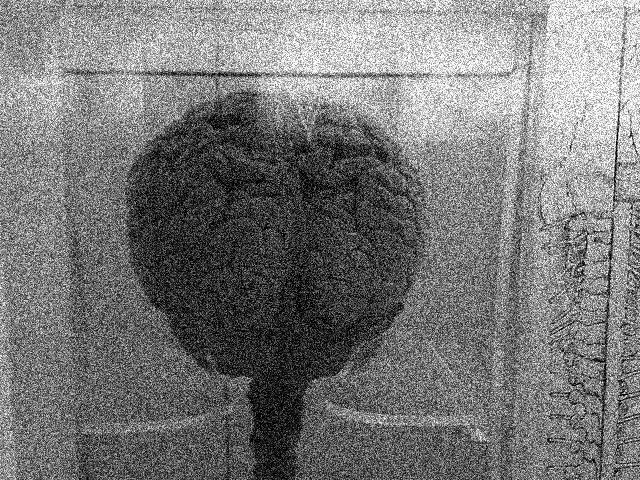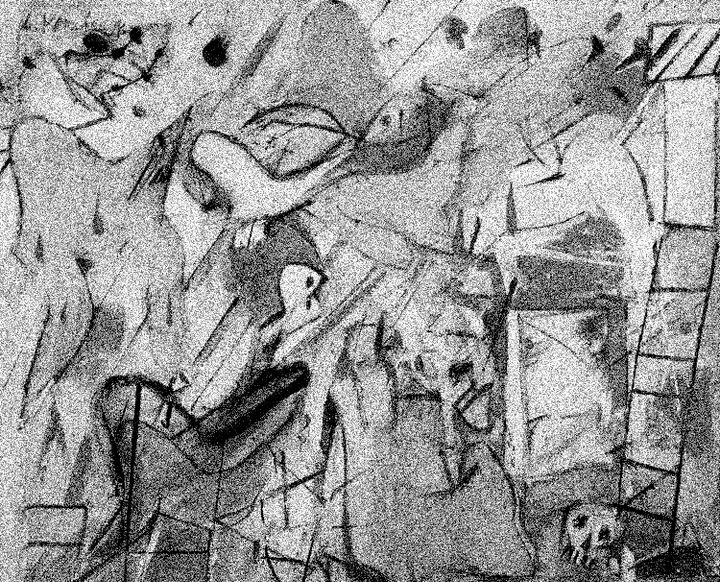After the Death of the Subject, Hatred of the Human
The death of the subject was about the loss of human agency. Today we are witnessing the undermining of something recognizably human as such.

Already in 2002, the theorist James Heartfield posited that the “subject”—the freely thinking and autonomously acting moral agent at the core of Enlightenment thought and modern political activity—had died. According to Heartfield, the death of the individual subject was the consequence of the world historical defeat of the collective working class. Although this is hardly a rosy picture, today’s looks far bleaker. With the working class defeated and disorganized, the prospects for rebuilding the subject seem highly uncertain. In the twenty years since Heartfield’s book was published, it has become clearer that we are now faced with the practical question of what comes after the death of the subject.
One option, long explored by Marxists, is that we are transformed entirely into objects, a conclusion of the process of “reification” (literally, thingification). There is good reason to think that this could be where we are headed. Covid encouraged us to think of ourselves not as freely choosing subjects, but as objects; as vectors of disease who could spread a deadly virus whether we wanted to or not. In such thinking, a morality grounded in the Kantian subject who weighs courses of action and freely executes them is obsolete. In the early twentieth century, György Lukács analyzed the processes of commodification that turned subjects to objects. He could not have imagined the extent to which we would see ourselves as merely objects a century later.
Central to this theoretical transition—which accompanied the political defeat of organized labor at the end of the twentieth century—was the rise of structuralist theories, prominent amongst which was that of Louis Althusser. Althusser downplayed the importance of human agency, but even he could not entirely rid his theoretical constructions of the residue of subjectivity, since his structures could never be entirely self-acting. Marxists are unable to avoid the tension between the forces under capitalism that tend to objectify us and those that tend to our forming classes and acting politically—that is to say, becoming both individual and collective subjects.
What distinguishes our current era from Althusser’s or even from the early 2000s is a broad scepticism about the category not of the subject, but of the human. While the 2000s and early 2010s saw a wide range of social engineering experiments aimed at unpicking the rationally-acting subject, in more recent years things have shifted up a gear. Now it is something more fundamental about who we are that is up for questioning. Indeed, if the death of the subject was about human agency, maybe now we are witnessing the undermining of something recognizably human as such.
Take British mobile network VOXI’s latest advert, which shows two immortal brains in vats trying to create a viral TikTok video. “How awesome is this unlimited social media?”, asks one; “I know—we can spend eternity creating content”, the other replies. While philosophers have long argued over whether we are able to prove that we are not brains in vats (or in a cave watching shadows, or in the Matrix, or tortured by an evil demon), the argument usually posits that someone or something is trying to deceive us through the simulations and images our brains receive. Today, we deceive ourselves (more precisely, our brains deceive themselves), actively searching out the content that keeps us plugged in.
The brains-in-vats image expresses two sides of our loathing of the human. On the one hand, we can see how stupid we are, reduced to a cycle of little clicks of the finger triggering little dopamine hits in the brain. On the other, there’s a longing expressed in the ad: if only we could be brains directly connected to the internet. This would allow us to escape from our weak and imperfect bodies and directly touch the pure inhuman knowledge that only exists online.
Our attachment to our human bodies is closely approaching the “take-it-or-leave-it” mark, as part of a wider dissatisfaction with the whole concept of the human. There is a deep suspicion of embodiment. What we take to be traditionally “normal” human sexual functioning is up for grabs. In some cases, this is long overdue, but in others it expresses some dissatisfaction with human sexuality itself as another facet of our impure and corrupted corporeal forms.
At the same time that the human is brought low, technology and animals are accordingly elevated. Debate rages, often longingly, over when AI will be able to replace not just parts of the workforce, but hopefully the worker as a whole. Any recognizably human creative power is seen as a messy inconsistency that ideally should be removed from the production process, presumably leaving us free to enjoy our leisure time. Meanwhile, political theorists have moved from explorations of animal rights or our responsibilities to protect the environment to speculating on whether non-human animals form a class or how they are practically indistinguishable from humans for the purposes of justice. In both cases our privileged position as ultimate creative force or as steward of the animal kingdom is rejected.
One attempt to take stock of the contours of our contemporary anti-humanism comes from philosopher Matthew B. Crawford. For Crawford, our emerging commonsensical model of the human has four key qualities, each of which is designed to make us more susceptible to a post-political mode of governance. First, we are stupid, and it is our irrationality that makes us unsuitable for “politics” in the classical sense. Second, we are increasingly obsolete, in that we are less reliable versions of machines. Third, we are fragile, in need of protection by the Leviathan, just as children require parental oversight. Fourth, we are morally unworthy, as evidenced centrally by the legacies of slavery and racism in the American case. Crawford links the rise of anti-humanism most closely to the rise of alienating technologies like self-driving cars, which have as their aim not just the reduction of human labor but the eclipse of the category of the human. We need self-driving cars because we are stupid, unreliable, in need of protection from ourselves, and morally abhorrent. Such “solutions” address not the problems of humanity but the problem of the human as such.
One could say that the only issue with Crawford’s account is that it does not go far enough. Many of the trends Crawford identifies as on the rise have, in fact, already reached fruition. Take his third claim, the notion that we are fragile and in need of protection. Rather than being at risk of harm, we see people today as already having been harmed. As Peter Ramsay puts it, the contemporary ideology of trauma and vulnerability is based on the premise that our vulnerability has always already been demonstrated. Similarly, it’s not just that we’re stupid, it’s that we’re increasingly idiotic. For the Greeks—as Crawford in fact notes elsewhere—idiocy was a far more serious condition than stupidity; the idiot was the purely private man, stunted by his isolation and disfigured by the nearness of his horizons. The problem for us is not so much our cognitive abilities (or lack thereof) but our self-chosen deformation.
The death of the subject was a loss; the hatred of the human is a celebration of that loss, and thus a serious threat to any recovery of agency and experience today. We fear our bodies, we disdain our thoughts and desires, we despise others as carriers of disease and retreat to our own small private lives. A climate doomerism that longs for the extinction of humanity is increasingly normal.
If the death of the subject is today transitioning into the hatred of the human, what can we do about it? In some of Crawford’s earlier work, he emphasized the importance of a practical grounding of human agency in skilled practices such as woodworking, motorcycle repair, or driving. These skills, he contended, offered a route to independence from experts and the ability to find meaning in tasks with internal standards of excellence. The situation today, however, is much graver. It is not just the possibility of meaningful agency that is being questioned today, but the very basis of that agency in something that we collectively accept as “human.” Indeed, in his most recent work, Crawford advocates for a turn to the Christian doctrine of the Incarnation as grounding the dignity of man. It is the potential for the presence of God in man, and God’s sacrifice based in love, that offers a foundation for human meaning and value, and thus a bulwark against the hatred of the human.
Unfortunately for Crawford—or any other shipwrecked humanist looking to cling to the rock of religion for redemption—we can no longer rely on being saved from above. We are now doomed to have to redeem ourselves, and even that redemption is highly uncertain. Although Christianity offers a theoretical valuing of the human as made in God’s image, the only real practical response we have to the hatred of the human is to show our collective power, and not through individual skilled practices but through forging common political projects and building big things. It will only be through a reforging of some grand, historical human endeavor that our hatred of ourselves will dissipate, though that hatred presents a formidable obstacle to doing so. We now know we meet under an empty sky from which the gods have departed, but this does at least mean when we look up there is nothing to constrain us.
■
George Hoare is a writer and researcher based in London; his most recent book is the co-authored Taking Control: Sovereignty and Democracy After Brexit.



